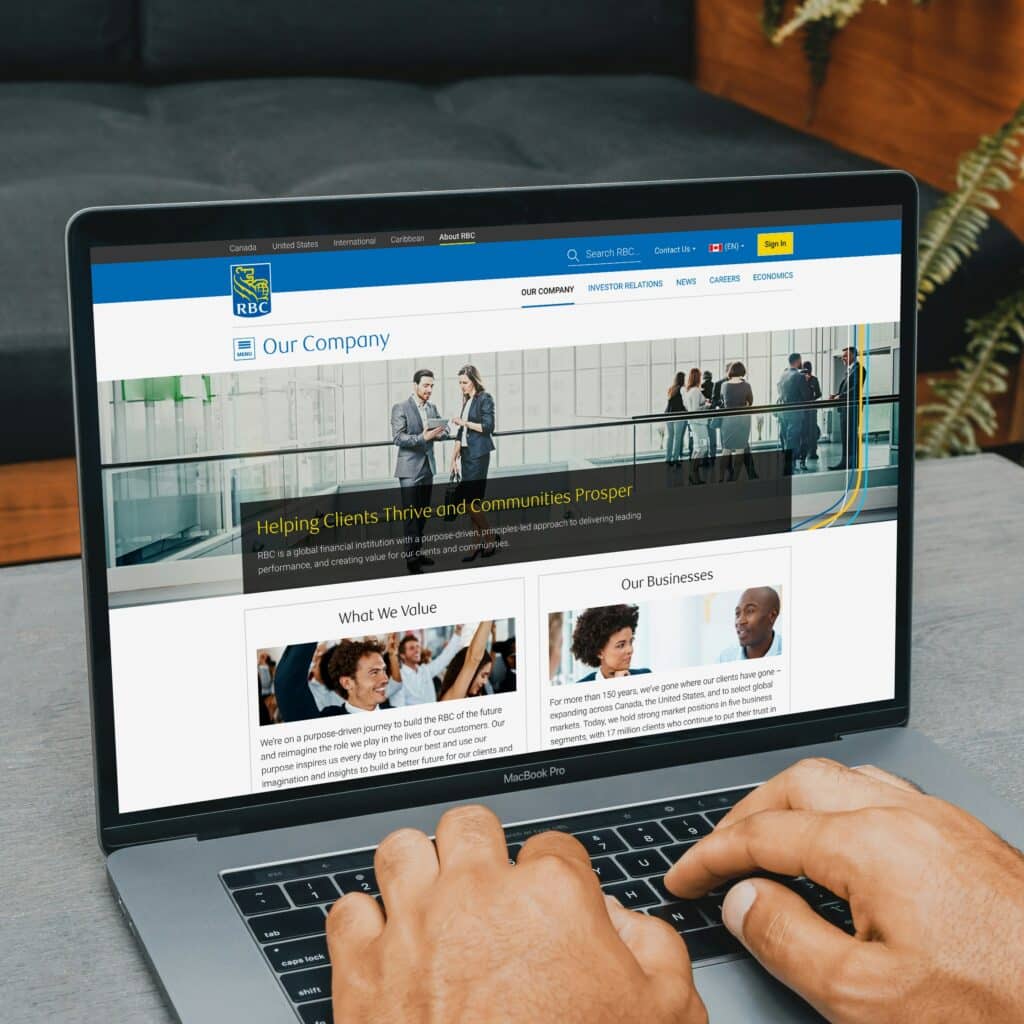Starting a blog is an exciting venture that offers a range of possibilities for personal and professional growth. Whether you want to share your passion, build a personal brand, or explore ways to make money online, learning how to start a blog can open doors to new opportunities. In this guide, we’ll walk you through the essential steps to successfully launch and grow your blog.
From choosing a niche to monetizing your content, we’ll cover everything you need to know. By the end of this article, you’ll be equipped with the knowledge and tools to start a blog that not only reflects your unique voice but also has the potential to generate income. So, let’s dive in and discover how you can start a blog and turn it into a rewarding experience.
Why Start a Blog?
Deciding to start a blog is more than just launching a website; it’s an opportunity to tap into a world of benefits. For many, the primary allure of starting a blog is the chance to express creativity and share personal passions with a global audience. Whether you’re writing about your favorite hobbies, professional expertise, or unique experiences, blogging provides a platform for self-expression and personal growth.
Professionally, starting a blog can be a powerful tool for building your personal brand. By consistently sharing valuable content, you can position yourself as an expert in your field, attract new career opportunities, and even connect with like-minded individuals.
Financially, the potential to make money from your blog is a significant motivator. With various monetization methods, such as affiliate marketing, sponsored content, and ad revenue, starting a blog can become a lucrative side hustle or even a full-time income stream.
Ultimately, the decision to start a blog is driven by the desire to combine personal satisfaction with professional and financial benefits. Embracing this opportunity allows you to explore and harness the full potential of blogging.
Choosing Your Blog Niche
When you decide to start a blog, one of the first and most crucial steps is choosing your blog niche. This decision will shape your blog’s direction and impact its success. A well-chosen niche aligns your blog with your interests and the needs of your target audience, setting the foundation for a compelling and sustainable blog.
Identifying Your Passion: The best blogs are often those that reflect the creator’s genuine interests and passions. When you start a blog about something you love, your enthusiasm will come through in your writing, making it more engaging for readers. Consider what topics excite you and where your expertise lies.
Market Research: While passion is important, it’s also essential to ensure there is a demand for your chosen niche. Conduct market research to identify popular topics and understand what potential readers are looking for. Tools like Google Trends and keyword research can help you gauge interest and competition.
Competitor Analysis: Understanding your competition is key when you start a blog. Analyze other blogs in your niche to see what they are doing well and where there may be gaps you can fill. Find a unique angle or approach that sets your blog apart and addresses unmet needs in the market.
By carefully selecting a niche that combines your interests with market demand and a unique perspective, you lay the groundwork for a successful blog. Taking the time to make an informed choice will pay off as you build and grow your blog.
Choosing Your Blog Niche
When you decide to start a blog, selecting the right niche is crucial to your blog’s success. Your niche will define the content you produce and attract the audience you aim to reach. Here’s how to make the best choice:
Identifying Your Passion: When you start a blog, focusing on a topic you are passionate about makes the process more enjoyable and sustainable. Your genuine interest in the subject will resonate with readers and keep you motivated. Reflect on what excites you and where you have expertise.
Market Research: It’s essential to validate your niche choice with market research. Determine if there is a demand for the topic you want to explore. Tools like Google Trends and keyword research can help you understand the popularity of your niche and identify potential audience interests.
Competitor Analysis: Understanding your competition is another key step. When you start a blog, analyzing other successful blogs in your chosen niche can provide insights into what works and what doesn’t. Look for gaps or unique angles you can leverage to stand out in a crowded market.
By carefully choosing a niche that aligns with your interests, meets market demand, and offers a unique perspective, you set a solid foundation for your blog. This strategic approach ensures that you start a blog that attracts and retains a dedicated audience, paving the way for long-term success.
Setting Up Your Blog
Once you’ve chosen your niche, the next step in learning how to start a blog is setting it up. This process involves several key decisions and actions that will lay the foundation for your blogging journey.
Selecting a Blogging Platform: The first step is choosing a blogging platform. Popular options include WordPress, Blogger, and Wix. When you start a blog, WordPress is often recommended due to its flexibility and extensive features. It’s user-friendly and offers a wide range of themes and plugins to enhance your blog.
Choosing a Domain Name: Your domain name is your blog’s online address, so it should be memorable and relevant to your content. When you start a blog, selecting a domain name that reflects your niche and is easy to remember helps in building your brand. Keep it short, simple, and avoid using numbers or hyphens.
Hosting Options: To make your blog accessible online, you need a hosting provider. When you start a blog, choosing a reliable hosting service is crucial for performance and security. Options like Bluehost, SiteGround, and HostGator offer good performance and customer support for beginners. Many of these services also offer one-click WordPress installations.
Installing Your Blog: Once you have your domain and hosting in place, the next step is to install your blog. Most hosting providers offer an easy, one-click installation for WordPress. Follow the provided instructions to get your blog up and running.
Setting up your blog properly ensures that you have a solid foundation to build upon. By carefully choosing your platform, domain name, hosting, and completing the installation, you set yourself up for a successful start when you begin blogging.
Designing Your Blog
Designing your blog is an essential step in learning how to start a blog that attracts and retains readers. A well-designed blog not only enhances user experience but also reinforces your brand identity.
Choosing a Theme: When you start a blog, selecting a theme that aligns with your niche and brand is crucial. A theme determines the look and feel of your blog. Look for a theme that is visually appealing, responsive (mobile-friendly), and easy to navigate. Many platforms, like WordPress, offer a variety of free and premium themes to choose from.
Customization: After choosing a theme, you’ll need to customize it to make it uniquely yours. Adjust colors, fonts, and layout to reflect your personal style and the identity of your blog. Customization helps in creating a cohesive brand image and makes your blog stand out.
Essential Plugins and Tools: When you start a blog, installing the right plugins can enhance functionality and performance. Essential plugins might include those for SEO optimization, social media integration, and performance improvement. For example, Yoast SEO helps optimize content for search engines, while Jetpack offers various tools for security and performance.
By focusing on these design aspects, you ensure that your blog is not only visually appealing but also functional and aligned with your brand. A well-designed blog will provide a positive user experience and support your blogging goals.
Creating Content
Creating compelling content is at the heart of learning how to start a blog that captivates and retains your audience. High-quality content not only attracts readers but also encourages them to return for more.
Content Planning: Before you start a blog, develop a content strategy and calendar. Planning helps you stay organized and ensures a consistent flow of posts. Identify key topics that resonate with your audience and align with your niche. A well-planned content calendar also helps in managing posting frequency and deadlines.
Writing Engaging Posts: When you start a blog, focus on writing engaging and valuable content. Use a clear, conversational tone and structure your posts with headings, subheadings, and bullet points to improve readability. Provide actionable insights and practical tips that offer real value to your readers. Incorporate personal anecdotes or examples to make your content relatable and interesting.
SEO Basics: Incorporate basic SEO practices to enhance the visibility of your blog posts. When you start a blog, use relevant keywords naturally throughout your content, including in headings and meta descriptions. Optimize images with descriptive alt text and ensure your blog’s URL structure is clean and relevant. These practices help improve your blog’s search engine ranking and attract more organic traffic.
By focusing on content planning, writing engaging posts, and implementing SEO strategies, you set the stage for a successful blog that draws in and retains a loyal readership.
Monetizing Your Blog
Once your blog is up and running, the next step is exploring ways to monetize it. Learning how to start a blog with monetization in mind can turn your passion project into a profitable venture.
Affiliate Marketing: When you start a blog, affiliate marketing is a popular method for earning income. By promoting products or services related to your niche, you can earn commissions on sales made through your affiliate links. Choose affiliate programs that align with your blog’s content and audience interests to maximize your earnings.
Sponsored Content: Another way to monetize your blog is through sponsored content. When you start a blog, partnering with brands for sponsored posts allows you to earn money by creating content that features their products or services. Ensure that sponsored content aligns with your blog’s niche and provides value to your readers.
Ad Revenue: Displaying ads on your blog is another effective monetization strategy. Platforms like Google AdSense enable you to earn revenue from ads placed on your site. When you start a blog, integrating ad networks can generate passive income as your blog attracts more traffic.
Selling Products/Services: Offering your own products or services is a direct way to monetize your blog. When you start a blog, consider creating and selling digital products like eBooks, courses, or printables. Alternatively, you can offer consulting or coaching services related to your niche.
By implementing these monetization strategies, you can transform your blog into a source of income, making your blogging journey not only enjoyable but also financially rewarding.
Promoting Your Blog
Effective promotion is key to ensuring that your blog reaches its intended audience. When you start a blog, strategic promotion helps drive traffic and increase visibility, leading to greater engagement and growth.
Social Media: Leveraging social media platforms is one of the most effective ways to promote your blog. Share your blog posts on channels like Facebook, Twitter, Instagram, and LinkedIn. When you start a blog, creating a consistent posting schedule and engaging with your audience on social media can significantly boost traffic to your site.
Networking: Building relationships with other bloggers and influencers in your niche can also enhance your blog’s visibility. Collaborate on guest posts, participate in blog tours, or join online communities related to your niche. When you start a blog, networking helps you tap into new audiences and gain valuable backlinks to your site.
Email Marketing: Growing an email list is another crucial aspect of promoting your blog. When you start a blog, use email marketing to keep your subscribers updated with new content, exclusive offers, and newsletters. Providing incentives, like free eBooks or downloadable resources, can encourage visitors to sign up for your email list.
By implementing these promotion strategies, you increase your blog’s reach and attract a wider audience, helping you build a successful and thriving blog.
Maintaining and Growing Your Blog
Maintaining and growing your blog is crucial for long-term success. Once you’ve learned how to start a blog, the next steps involve consistent updates and strategic growth to keep your blog relevant and engaging.
Regular Updates: When you start a blog, it’s essential to keep your content fresh and up-to-date. Regularly updating your blog with new posts ensures that your audience remains engaged and that your blog continues to attract search engine traffic. Set a consistent posting schedule to keep your content flowing and your readers coming back for more.
Analyzing Performance: Use analytics tools, like Google Analytics, to track your blog’s performance. When you start a blog, monitoring metrics such as traffic, engagement, and conversion rates helps you understand what’s working and where improvements are needed. Analyzing this data allows you to make informed decisions about content and strategy.
Staying Informed: The blogging landscape is always evolving, so staying informed about industry trends and best practices is crucial. When you start a blog, keep up with the latest developments in SEO, content marketing, and blogging tools to ensure your blog remains competitive and effective.
By focusing on regular updates, performance analysis, and staying informed, you can successfully maintain and grow your blog, ensuring its continued success and relevance.
Knowing how to start a blog involves several key steps, from selecting your niche to promoting and monetizing your content. By carefully choosing your niche, setting up your blog with the right tools, and creating valuable content, you lay the groundwork for a successful blogging journey. Effective promotion and ongoing maintenance are crucial for growing your audience and ensuring long-term success. Remember, starting a blog is not just about launching a website; it’s about building a platform that reflects your passions and connects with your audience. With dedication and strategy, you can turn your blog into a rewarding venture.
Visit our website to make informed career choices that align with your lifestyle.




